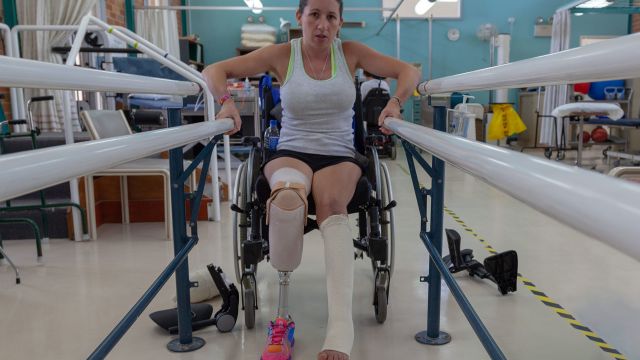Meningitis is an inflammation of the membranes that protect the spinal cord and brain. Though meningitis can have a number of causes, the most common causes are viral and bacterial infections. Meningitis B (MenB) is one type of bacterial meningitis.
MenB is caused by infection with serogroup B meningococcal bacteria. When this type of bacteria invades the area around the spinal cord and brain, meningitis B occurs.
MenB can be accompanied by meningococcal septicemia, a severe infection where the meningitis-causing bacteria enters the bloodstream. With meningococcal septicemia, the bacteria damage the blood vessels and reduce the normal supply of blood to the skin, extremities, and vital organs. This can lead to serious complications, including scarring of the skin, organ failure, and loss of limbs. Infections can be fatal.
Below is a closer look at the complications that can occur when a meningococcal infection spreads through the body.
Hearing loss
Hearing loss is a common complication following meningococcal disease. It can occur when the bacterial meningococcal infection spreads to the cochlea (a hollow, spiral-shaped bone found in the inner ear) and damages cells called hair cells (which generate nerve signals that are then passed onto the brain). It can also occur if the auditory nerve that carries sound signals to the brain becomes inflamed. Hearing loss can be mild, moderate, severe, or profound, and can affect one or both ears.
Balance problems
The bacteria that cause meningitis B can also damage the peripheral vestibular system, which is located in the inner ear and sends signals to the brain in response to movement. Damage to the peripheral vestibular system can cause dizziness and result in problems with coordination and balance. These problems can range from mild to severe. In some cases, this complication is temporary. In others, it is permanent.
Vision loss
The optic nerve, which plays an essential role in vision, can be damaged by infection with meningitis-causing bacteria. This can result in permanent or temporary blurry vision or blindness in one or both eyes.
Scarring
When a meningococcal infection spreads into the bloodstream, it can damage the blood vessels and cause internal bleeding. A common symptom of this type of infection is a skin rash caused by blood collecting in the skin, which can progress into larger discolored areas that look like extensive bruising. When the body bleeds like this, blood flow to the skin and extremities is reduced as the body's limited blood supply is prioritized for vital organs. As a result, skin tissue can die. This can cause temporary or permanent scarring, which may require skin grafts and plastic surgery to restore function and appearance.
Amputation
As mentioned in the previous paragraph, a bloodstream infection can result in a reduced blood supply to the extremities—the fingers, toes, hands, and feet. The tissues that make up these areas of the body can die when denied the oxygen and nutrients carried by blood. In severe cases, a limb may become damaged beyond repair, and surgical amputation may be needed.
Organ failure
Although the body prioritizes getting blood to the vital organs during cases of meningococcal infection, organs like the liver and kidneys can become damaged by the combination of reduced blood supply and high levels of infectious bacteria in the body. In some cases, the organs can recover completely with treatment. In other cases, the damage is permanent and requires lifelong care. If the damage is severe enough, it can be fatal.
The importance of treatment and prevention
If a person has meningococcal disease, early treatment can reduce the risk of complications and death. Prevention is also important. Getting the MenB vaccine, for example, can help protect against meningococcal disease caused by serogroup B bacteria. The vaccine is typically given to teens and young adults between the ages of 16 and 23 (and preferably given between the ages of 16 and 18). If you are interested in the MenB vaccine, talk to your family’s healthcare provider to learn more.






